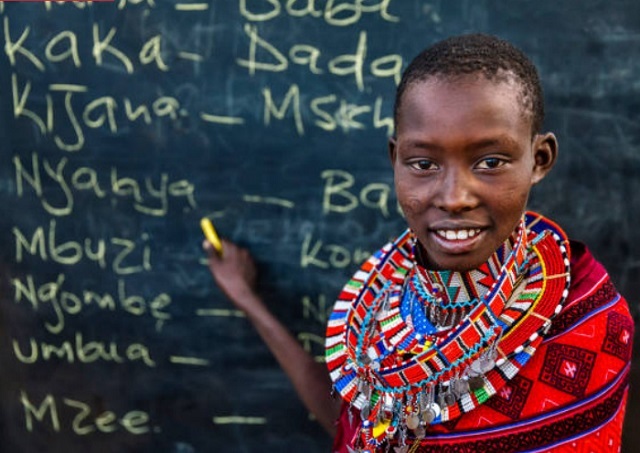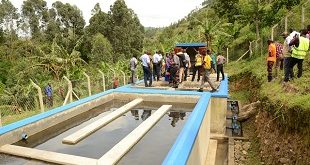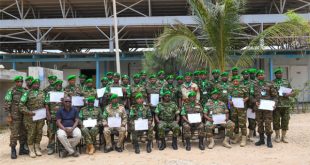
Kampala, Uganda | THE INDEPENDENT | Ugandans should realize the importance of learning the Kiswahili language or risk losing the opportunities that come with this fast-growing language.
Kiswahili has been recognized as a language that speaks to the past, present, and future with over 200 million speakers. The language is increasingly being recognized among the dialects that will be key in aspects of trade and commerce and generally globalization.
UNESCO adopted a resolution recognizing the role of the Kiswahili language in 2021 and designated July 7 as World Kiswahili Language Day. According to UNESCO, Kiswahili is crucial in promoting cultural diversity, creating awareness, and fostering dialogue among civilizations.
Today, the World Kiswahili Language is being celebrated under the theme “Unleashing Kiswahili’s Potential in the Digital Era.” Audrey Azoulay, the Director-General of UNESCO says Kiswahili not only tells a story of dialogue between languages but also of dialogue among peoples and countries. She said because Kiswahili shares words and concepts with other African languages, it has an impressive unifying power.
“This is why the African Union, East African Community, and Southern African Development Community have all chosen Kiswahili as one of their official languages. In this way, Kiswahili will play a role in ensuring the African continent achieves its full potential, a goal that UNESCO also works towards, through its Global Priority Africa,” said Audrey Azoulay.
In what language does the word “amani” mean peace? 🤔
The answer is #Kiswahili!
Spoken by 200 million people across Africa and the Middle East, it creates common ground between communities & between countries everyday.
Happy #KiswahiliLanguageDay! https://t.co/XInjk4wJYS pic.twitter.com/GZiCtmTGwI
— UNESCO 🏛 #Education #Sciences #Culture 🇺🇳 (@UNESCO) July 7, 2023
Despite the importance attached to this Bantu language, it has been received with skepticism in Uganda each time the government has to promote it. President Yoweri Museveni is one of the leaders that has fronted Kiswahili. He occasionally addresses visiting delegates from East Africa in Kiswahili.
However, a cross-section of Ugandans have over the decades shunned the language and others have mistaken it for the language of the military, robbers, oppressors, and generally the armed forces. But According to Museveni, Kiswahili is not a language of the military nor does it belong to any tribe or country as some people have tended to insinuate.
“Kiswahili is a Bantu dialect but which has no tribe. This is the advantage of Kiswahili. It is not as rich as some of the vocabulary in some of the hinterland languages, because those languages in the hinterland are very rich in vocabulary,” Museveni observes.
Uganda and the Swahili Language
Right from the sixties, Uganda had for long been hesitant to adopt a clear position or policy about the teaching of Kiswahili in Schools or generally its usage as part of the country’s languages. Under Museveni, the 1992 government white paper on education provided that Kiswahili must be taught in Schools.
The paper said Kiswahili and English should be taught as compulsory subjects to all children throughout the primary cycle in both rural and urban Uganda. It was hoped that with Kiswahili, there was a greater capacity for uniting Ugandans and would assist rapid social development.
But the white paper was not fully implemented because the country lacked trained and skilled teachers and teaching material. During the making of the 1995 constitution, some of the delegates tried to block Kiswahili from being recognized as the second Official language after English.
In 2019, the government decided to the establishment of the Uganda National Kiswahili Council to guide the introduction of Kiswahili as the second national or official language. The Cabinet last year further endorsed Kiswahili in the new thematic curriculum. It is one of the compulsory subjects from Primary Four. But the language is not examined at Primary Leaving Examinations.
Despite the new developments, some Ugandans have been hesitant to learn and speak the language. Like in the past, Kiswahili has been associated with the military or as a language of oppression. Those who have attempted to learn Kiswahili hardly write it or are fluent in it. Among Kenyans and Tanzanians, there is a popular joke that “Swahili either died and was buried in Uganda”
The East African Kiswahili Community protocol requires its members, Uganda, Kenya, Tanzania, Burundi, Rwanda, South Sudan, and DRC to promote Kiswahili as part of the region’s lingua franca. Rwanda has since 2017 recognized Kiswahili as part of its official languages alongside English and French. Like Uganda, Rwanda has been struggling to find Swahili teachers.
In Uganda, there are efforts to have Kiswahili taught at National Teacher’s Colleges like Kabale NTC in Kabale district. Editor Oshabaobomwe is one of the newly graduated teachers of Kiswahili and when asked why she chose Kiswahili as a language, she told URN that it is a good language that can develop culture and ease communication in East Africa, Africa, and the world.
Oshabaobomwe was lucky that she has a good Kiswahili teacher at her O’Level. So she chose to continue learning it as a subject. She is quite fluent in the language, she can sing and recite poems in Swahili too.
At Kabale NTC’s Library, there are a number of books for teaching the Swahili language but they are in the reserve section because they are in high demand.
Here, you find books by celebrated authors like Ngugi wa Thiog’o translated into Swahili and the late Ken Walibora’s Kufa Kuzikana and Siku Njema books. Here you also find Marudio Hima Hima Kiswahili language book by Kenyan writer Grace Murithi. The section has only one book Masomo ya Msingi wa Kiswahili written by Ugandan Milton Rwabushaija.
Peter Agaba, a lugha ya Kiswahili lecturer at NTC KabaletoldURN that there was still a challenge in finding books to teach the language despite the growing interest among the student teachers joining the college that may soon be turned into a University. “As far as literature is concerned, we have enough books in stock but we need more in grammar,” he said.
There are about one hundred student teachers about to graduate with a bias in the Swahili language. According to Agaba, the number of students has been growing since 2014. One other challenge for the learners has been the influence of the mother languages which tend to be mixed in Kiswahili.
Muriisa Bruno, another student at the college told URN that he had been inspired to learn Swahili from an elderly man in his village who thought that the language would be a uniting factor in Uganda.
“So I had to love Swahili from then but I couldn’t get the opportunity to learn it. So when I reached Secondary school, I found it so I loved that language from senior one” he said
Simply translated, Muriisa said that he was happy that Swahili is not just being promoted as a language in Uganda, the East African Community but in Africa as a continent. Kiswahili is growing and gaining popularity.
Kiswahili teaching is taking an international dimension and a number of Universities in Asia, North America, South Africa, Ghana, and Japan are teaching Swahili.
*****
URN
 The Independent Uganda: You get the Truth we Pay the Price
The Independent Uganda: You get the Truth we Pay the Price


